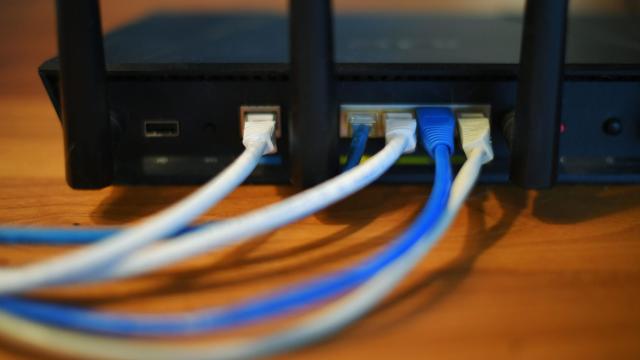If you’ve ever wondered why you still have to pay your internet provider rental fees for a modem even after you bought it, I have some good news: A new U.S. law is shutting that shit down from here on out.
As Ars Technica notes, the Television Viewer Protection Act goes into effect starting Dec. 20, which bans broadband and TV providers from charging rental fees for equipment customers own themselves such as modems and cable boxes. The law was approved in December 2019 and was originally set to go into effect on June 20, but Congress authorised the Federal Communications Commission to grant an extension after ISPs argued that the pandemic made the original deadline impractical. Many companies have already amended their policies in preparation for the December deadline, but now any that might have been dragging their feet will be legally compelled to comply beginning Sunday.
Case in point, Frontier Communications, a leading ISP among rural communities with business in 26 states, insisted on squeezing out every last penny that it could and charged customers its usual $US10 ($13) monthly rental fee throughout the six-month extension. Frontier said in a June interview with Ars Technica that it “plans to comply with the requirements when the law goes into effect,” meaning the company intended to keep charging rental fees until the moment it legally couldn’t.
Speaking to the outlet in July 2019, the company claimed its rental fees were to cover higher support costs for customers who choose not to purchase a Frontier router, but in the same breath it also said it “cannot support or repair non-Frontier equipment.” So ostensibly, the $US10 ($13) a month functioned as thinly veiled extortion to push customers to buy Frontier’s proprietary devices if they wanted to avoid arbitrary rental fees. Capitalism at its best, folks. Frontier confirmed to Ars Technica on Sunday that it is now “in compliance” with the TVPA, but warned that it couldn’t guarantee compatibility or offer support for customers who use their own equipment.
In addition to banning rental fees, the TVPA will also force TV providers to adopt more transparency about how they charge customers, so no more hidden fees or sneaky price hikes. The law bans penalties for customers who cancel their TV service within a 24-hour period and forces TV providers to give customers an itemized breakdown of all monthly charges before they enter into a contract. Of course, these companies can still jack up their prices whenever they please, even for customers who have been under contract for years, but now at least it won’t come as an ugly surprise on your monthly bill when they do.
While these transparency requirements sadly don’t extend to ISPs at the moment, consumer advocates are already pushing for Congress to expand the law’s influence.
“We hope that the FCC will robustly enforce this legislation, and ensure that pay-TV providers disclose their total prices clearly and conspicuously,” said Public Knowledge, a D.C.-based non-profit that advocates for consumer rights in the digital marketplace, in a blog post this week. “Congress can further expand these requirements to ensure that companies are upfront in their advertising. Congress should also expand the requirements to companies providing internet service, or any other services bogged down with hidden fees. Ensuring those things would make this a very merry holiday season indeed.”
